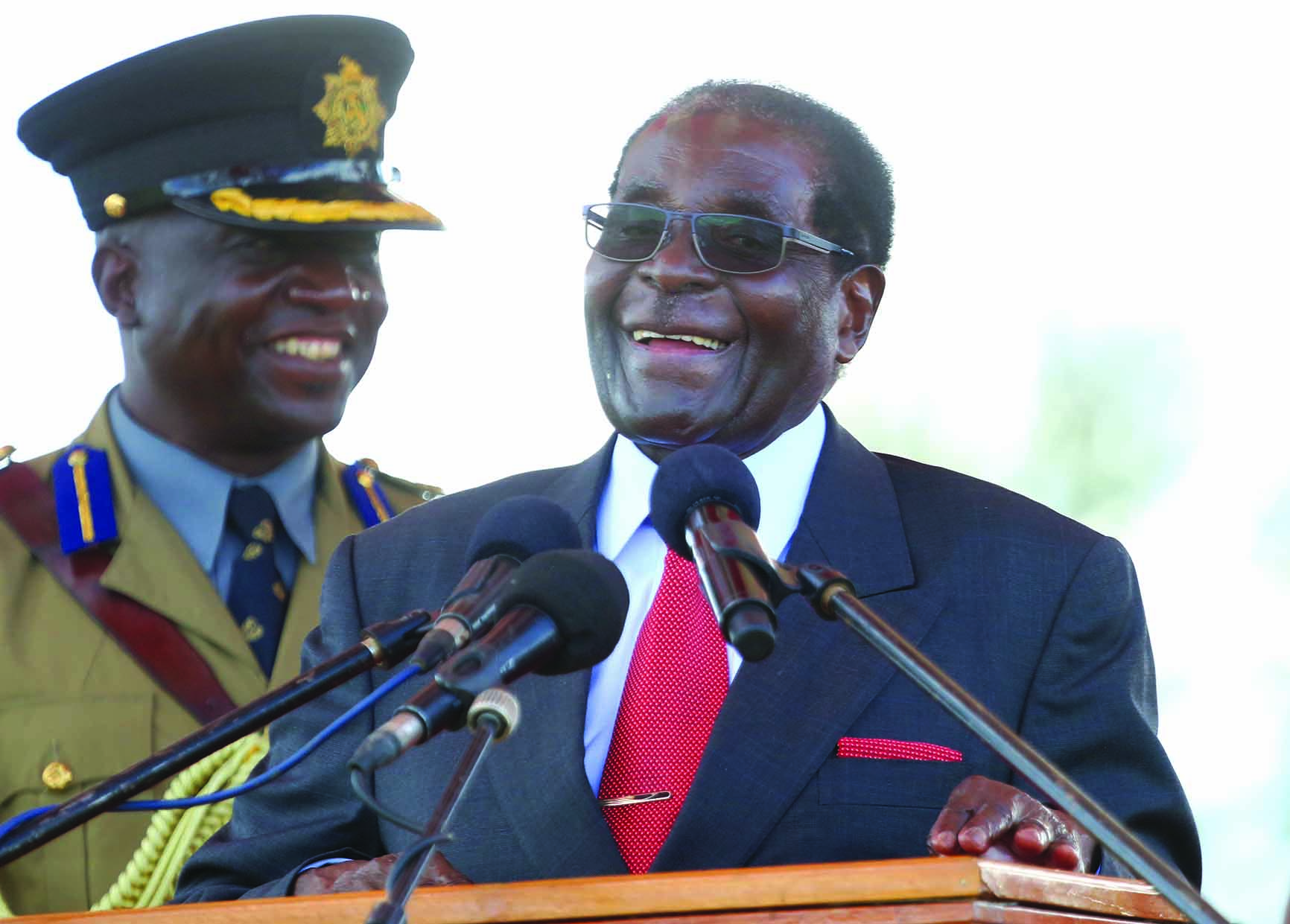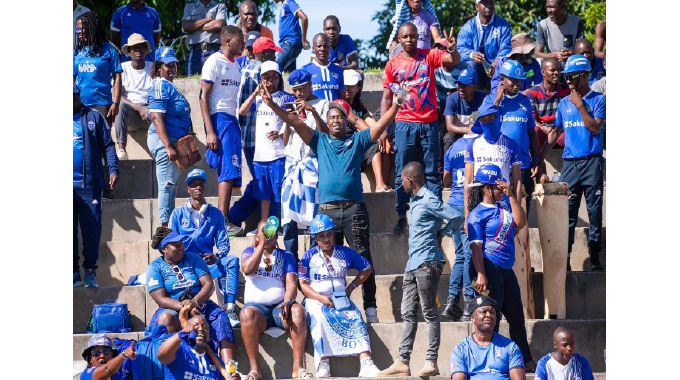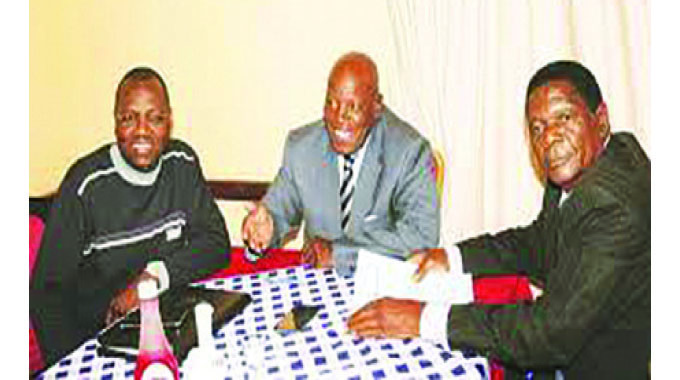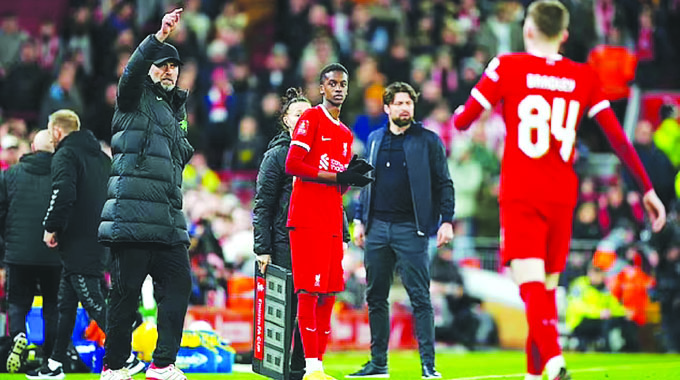THE BIG QUESTION IS, WHAT REALLY DID THEY SEE IN THIS SILVA FELLOW?

 SOME are saying it was a marriage-made-in-hell, a rookie Portuguese coach with a questionable, if not fraudulent record, being plucked from an Internet search to be handed the biggest job in the domestic Premiership.
SOME are saying it was a marriage-made-in-hell, a rookie Portuguese coach with a questionable, if not fraudulent record, being plucked from an Internet search to be handed the biggest job in the domestic Premiership.
Others claim the hiring of an unheralded white coach, to take charge of a club whose roots are in that movement in the Swinging Sixties which battled against white domination, just a few months after the death of one of their founding fathers Freddie Mkwesha, meant that this was a relationship that was always doomed.
A football club formed by a group of visionary and talented black players in the capital, in a period dominated by teams that were owned by the whites, when football in this country still had a lot of white footballers, coaches and supporters on its lush green fields.
They will say the likes of Sam Dauya, Josiah Akende, Patrick Dzvene, Richard Chiminya, Allan Hlatshwayo and Josiah Akende, the founding fathers of this football club, which has transformed itself into a national institution, who passed on along the way, were turning in their graves — in revolt — against the hiring of this rookie Portuguese.
But others will say what about Perreira, that white Zimbabwean of Portuguese origin, who coached Dynamos in 1963 and 1964 and helped the Glamour Boys to win the league championship in ’63 and the Austin Cup, then a prestigious silverware on the domestic football scene back in those years?
How was it possible he succeeded at such a club?
But, those who argue that white coaches are less likely to succeed at Dynamos, will probably say — and with good reason too — that Perreira was just an isolated case, a coach who came on board at a time when the Glamour Boys were a very, very powerful unit and could still have won the championship under any other coach.
They will argue the failure by more than half-a-dozen other white coaches, including one who was good enough to win the African Cup of Nations with Nigeria in 1994 — the Super Eagles’ first triumph in this tournament in 14 years — supports their position that a relationship between their team and white coaches was more likely to end in the gloom of failure.
Clemens Westerhof wasn’t an ordinary coach when he arrived at the Glamour Boys, his glittering CV showed he had won the Nations Cup title in Nigeria and taken the Super Eagles to within just two minutes of a place in the quarter-finals of the ’94 World Cup, only to be denied by the genius of Italian talisman Roberto Baggio.
But for all his coaching excellence, the Dutchman was swallowed by the beast that is the Glamour Boys and, on August 18, 2001, Westerhof committed the cardinal sin — becoming the first Dynamos coach to lose to Black Rhinos in a league match in 16 years after a 0-1 loss at Rufaro — and, from there, it was only a matter of time before the relationship collapsed.
The Glamour Boys eventually finished a distant fourth that season and, the 12-point gap between them and the champions Amazulu, represented the WORST campaign by the Harare giants in the era of the modern Premiership up to that year.
Of course, they have had some horror campaigns since then — ending 28 points adrift of the champions in 2002, 36 points behind the champions in 2004, 18 points behind the champions in 2005 and 19 points behind the champions in 2006 — but that 2001 campaign, under Westerhof, started the rot for the Glamour Boys.
For the DeMbare fans, to beat Rhinos, year-in-and-year-out for 16-years, was the ultimate punishment which they felt their football gods were handing Chauya Chipembere for daring to poach some of their best players at the beginning of the ‘80s, and when the fun ended — with Westerhof and his men losing that game on August 18, 2001 — it was unacceptable and meant that the coach had to be sacrificed.
We heard a lot of the fans say, “vadzimu veChazunguza varamba murungu uyu, kuzotirova neshamhu inorwadza kudai kutidzyisa neRhinos, ngaaende zvake,” as we trooped out of Rufaro on that landmark afternoon that sealed the divorce between the Dutchman and the Glamour Boys.
AND, FIFTEEN YEARS LATER, IT’S THE SAME OLD STORY
Paulo Jorge Silva was probably not the worst coach to take charge of Dynamos, but just like Westerhof before him, he was burdened by history at a team where white coaches have generally found the going tough, and when he also committed the cardinal sin — becoming the first DeMbare coach to lose to CAPS United in seven years in the league — his fate was as good as sealed.
What the DeMbare fans might want to know, now that this Silva experiment has come to an end, forever fated to end in failure and at the shortest possible time as correctly predicted by my colleague at The Sunday Mail Makomborero “Gold” Mutimukulu, is how those who employed the Portuguese comedian — a lightweight in this game — believed he could succeed where a heavyweight like Westerhof had failed?
What did they see in Silva, which wasn’t in Tonderai Ndiraya, save for the colour of his skin and that he happens to come from a country that produced one of the greatest coaches of our time, Jose Mourinho, which the Dynamos leadership believed would add value to their brand and take their club forward?
What did they see in Silva, which wasn’t in David Mandigora, save for his eccentricity, a cooked CV that showed that he had been dining in heaven when all that he has been doing has been wandering in hell, and empty promises of making them great when he was, in fact, a specialist in failure?
After all Yogi can say that he was the coach who guided Dynamos to the semi-finals of the 2008 Champions League and, where Silva was failing to pass the test at the Colliery, he was passing bigger tests on the continent.
Poor Silva, a man with an addiction to controversy, a chronic illness of seeing shadows everywhere he went, a foolish tendency to blame sabotage for his graphic shortcomings, who somehow made them believe that a good guy like Gift Muzadzi could, overnight, turn into a latter-day Judas Iscariot who could work, clandestinely, to destroy a club that he gave everything to make it such a powerhouse?
Like that afternoon before that hostile crowd, and an equally hostile referee, in the Stade Houphouet Boigny in Abidjan in 1998 where, after coming in as a replacement for the injured Ernest Chirambadare, he turned on a very good goalkeeping show, throwing his body on the line, for the cause of his Glamour Boys, in their battle for immortality in the Champions League final.
If he could stand tall among those 40 000 screaming Ivorians, vying for our blood, in a ferocious battle that featured all of them — and just a few of us who included the Dynamos players and their officials, and the three travelling journalists covering that match — which had long evolved from being just a fight for the Glamour Boys, but our entire nation given the significance of the occasion, and the priceless nature of the spoils, why then should he turn into a rebel now?
Like all those days when his confidence, which bordered on arrogance, would see him send thousands of Dynamos fans hearts pounding as he bounced the ball on the post, a trick he says was meant to send a message to the supporters that they had nothing to fear because he was there for them and, after all, they were the Glamour Boys, this massive institution that didn’t know the colour of retreat or the face of surrender.
What did they see in Silva, which wasn’t in Moses Chunga, their beloved Razorman, who with the passage of time became known as Bambo, a man whose arrival at the Glamour Boys as a spiky-haired teenager who resembled boxing’s Don King, with an attitude and a talent to match his arrogance, helped steady their ship hit by the turbulence of that Black Rhinos’ raid on their players?
So many questions, yet so few answers, for and from a DeMbare leadership that needs to address their constituency, a family spoiled with success when Callisto Pasuwa was the one driving their campaign not so long ago before that fruitful union was abruptly ended only for Manabhunu to show them he could also thrive when handed tougher challenges and, in less than a month’s time, he could possibly celebrate becoming only the third coach to take the Warriors to the Nations Cup finals?
And that is not Mickey Mouse company because you have Sunday Chidzambwa, the greatest of football coaches to emerge from this country, who finally ended our lengthy wait for a place at the Nations Cup finals, having graduated from the Dynamos ranks where he won more league championships, as an individual, than all the other Glamour Boys’ gaffers.
Then, there is also Charles Mhlauri, who thrived at CAPS United and set a benchmark of success for the Green Machine, before also graduating into the Warriors where he took his nation to their second appearance at the Nations Cup finals in 2006 in Egypt.
You hire Mhlauri, and things don’t go to plan, and people can understand that, at least, you tried to bring in quality technical staff, you hire Mhofu and things don’t go to plan and, at least, you can tell the people that you tried your best to bring in quality staff, but how do you explain hiring Silva and, as expected, things don’t go according to plan?
So many questions for the DeMbare leadership and, hopefully, they will have answers because that is what their constituency, which has given them the mandate to manage this institution on behalf of them, are praying for in all this drama.
For there comes a time when a true leadership has to take responsibility and concede that we got it all wrong, when we ended our relationship with Pasuwa, when we didn’t give Tonde enough time, when we didn’t give Lloyd enough time because you can’t keep doing the same thing again, and again, and hope for a different result.
AFTER THE TEARS OF 2011, RAHMAN RETURNS HOME
On November 13, 2011 Mandava was supposed to bear witness to the coronation of FC Platinum as the champions of Zimbabwe football, the new force that had flexed its muscles and blown the traditional big boys into submission, a grand occasion that featured a number of chiefs from the area and an eight-page supplement in a newspaper hailing the new champs-in-waiting.
For the supporters of FC Platinum, this was the beginning of their dominance of the domestic football scene, the dawn of a new era, the arrival of a giant — with the financial muscle to even build a modern-day stadium in record time — the triumph of professionalism over primitivism, the first deafening sounds of a giant which would be heard throughout the country.
For them, this would be what it sounded like when doves laugh, and Zvishavane — a town bursting with activity from the rich pickings that lay beneath its surface — was on the edge, ready to explode, to celebrate what ShuShine had failed to do, even when a magician like Isaac Riyano used to play for them, and what Shabanie had failed to do, even when they had Asani Juma and Thomas “Chaurura” Makwasha, he of that pony-tail.
This was something that Mhangura, for all the football talent that it had possessed, Alick Masanjala and company, had failed to do, what Rio Tinto — John Rugg, Robert Godoka, Ephert Lungu, Barnabas Likombola, David Chisambe, David Mwanza, the immortal Joseph Zulu — had failed to do, what Gweru United, the Pisa-Pisa of the Midlands, that football machine, had failed to do.
What Hwange, oh what a team, from Barry Daka to Posani Sibanda, from Rodreck Simwanza to Nyaro Mumba, from Sam Mutende to Daniel Rendo, from Benson Soko to Kakoma Kayonda, had failed to do all these years and what the great Tanganda, the Tan-Tan of Lloyd Mutasa, Webster Kurwaisimba and company, failed to do in their prime.
That is, taking the league championship from the two main cities of Harare and Bulawayo, as done by that St Paul’s team of 1966, and on that beautiful summer afternoon, with no hint of rain in the air and no wind to blow away any tears, the people of Zvishavane stood on the threshold of writing a landmark success story with FC Platinum on the verge of winning the league title.
All they needed was just a draw, just a point, and the rest would be history because their last game, against a Shooting Stars side about to be relegated, was just a formality, or they could do it in style and win that game against Dynamos, in their backyard, and the title was theirs that day.
However, in a classic smash-and-grab raid, DeMbare won, and didn’t need to even score to win, with Daniel Veremu scoring an own goal and the Glamour Boys had their fate in their hands with a routine victory over Kiglon the next weekend confirming them as champions.
I can still see Rahman Gumbo slumped on the bench, long after that game had ended, consumed by the horror of what had just happened, unable to understand how fate had been cruel to them that afternoon, so many questions in his mind and so few answers.
The impact of the events of that dramatic afternoon were so severe I wasn’t surprised when Rahman and FC Platinum’s relationship collapsed a few months later, in the new season, and whether his time away from all this madness has refreshed Rush — who now returns as the Chicken Inn coach — for the challenges of the domestic Premiership remains to be seen.
He is a good coach, without a doubt, but he has a tough job to handle a team that appears still trapped in the celebrations that followed their surprise league triumph last season and who should have cut their ties with Joey Antipas the moment the coach inked a deal with another team in South Africa and then appeared to suggest that our players are not as talented as those in Mzansi.
For a man who is going to coach a Division One side, that is a big statement to make, especially in the week that Pitso Mosimane, who has just won his second Premiership title in South Africa in three years, is saying no one played better than Khama Billiat in Mzansi this season.
In Shona we have a saying that goes like, “natsa kwawabva nokuti kwaunoenda husiku,” and, maybe my good pal Joey might not understand its meaning, but that’s for him to ask his trusted lieutenant Prince Matore.
Life, though, has a funny way of hitting back at us and even Triangle can come to Luveve now and beat the Gamecocks.
Welcome home Rush!
Come on Warriors!!!!!!!!!!!!!!!!!!!!!!!!!!!!
Khamaldinhooooooooooooooooo!
Text Feedback – 0772545199
WhatsApp Messenger – 0772545199
Email – [email protected]
Skype – sharuko58
- Chat with me on Facebook, follow me on Twitter @Chakariboy, interact with me on Viber or read my material in The Southern Times. The authoritative ZBC weekly television football magazine programme, Game Plan, is being refreshed and we off air for now









Comments